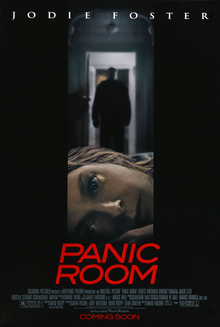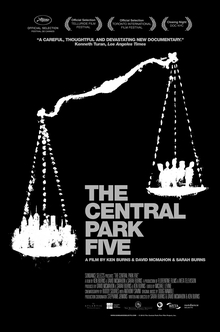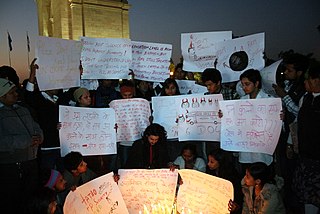
The Silence of the Lambs is a 1991 American psychological horror thriller film directed by Jonathan Demme and written by Ted Tally, adapted from Thomas Harris's 1988 novel of the same name. It stars Jodie Foster as Clarice Starling, a young FBI trainee who is hunting a serial killer named "Buffalo Bill", who skins his female victims. To catch him, she seeks the advice of the imprisoned Dr. Hannibal Lecter, a brilliant psychiatrist and cannibalistic serial killer. The film also features performances from Scott Glenn, Anthony Heald, and Kasi Lemmons.
The Sydney gang rapes were a series of gang rape attacks committed by a group of up to 14 youths led by Bilal Skaf against Australian women and teenage girls as young as 14, in Sydney, New South Wales, Australia across several days in 2000. The crimes, described as ethnically motivated hate crimes by officials and commentators, were covered extensively by the news media, and prompted the passing of new laws. In 2002, the nine men convicted of the gang rapes were sentenced to a total of more than 240 years in jail. According to court transcripts, Judge Michael Finnane described the rapes as events that "you hear about or read about only in the context of wartime atrocities".

Kelly Ann McGillis is an American actress. She is known for her film roles such as Rachel Lapp in Witness (1985), for which she received Golden Globe and BAFTA nominations; Charlie in Top Gun (1986); Made in Heaven (1987); The House on Carroll Street (1988); and as Katheryn Murphy in The Accused (1988). In her later career, she has starred in horror films such as Stake Land (2010), The Innkeepers (2011), and We Are What We Are (2013).

Panic Room is a 2002 American thriller film directed by David Fincher. The film stars Jodie Foster and Kristen Stewart as a mother and daughter whose new home is invaded by burglars, played by Forest Whitaker, Jared Leto, and Dwight Yoakam. The script was written by David Koepp, whose screenplay was inspired by news coverage in 2000 about panic rooms.

Mukhtaran Bibi, now known as Mukhtār Mā'ī, is a Pakistani human rights activist from the village of Meerwala, located in the rural tehsil of Jatoi in the Muzaffargarh District of Punjab, Pakistan. In June 2002, Mā'ī was the victim of a gang-rape sanctioned by a tribal council of the local Mastoi Baloch clan, as a form of 'honour revenge'; the council ruling was a result of a dispute between the wealthier Mastoi Baloch and Mā'ī's Tatla clan.
Cheryl Ann Araujo was a Portuguese-American woman from New Bedford, Massachusetts, who was gang-raped in 1983 at age 21 by four men in a tavern in the city. Her case became national news and drew widespread attention to media coverage of rape trials.

Things Behind the Sun is a 2001 drama film directed by Allison Anders and starring Kim Dickens and Gabriel Mann. It premiered at the 2001 Sundance Film Festival and was later aired on television by Showtime on August 18, 2001. The film is based on an early adolescent experience of Anders’. Its title is taken from a song by Nick Drake.
Rape and revenge, or rape-revenge, is a film subgenre characterized by an individual enacting revenge for rape or other sexual acts committed against them. Rape and revenge films are commonly horror films, thrillers, or vigilante films.
Zakhmi Aurat is a 1988 Indian Hindi drama movie starring Dimple Kapadia and Raj Babbar and directed by Avtar Bhogal. Kapadia played Kiran Dutt, a police officer who is subject to gang rape and, when the judicial system fails to convict the criminals, unites with other rape victims to castrate the rapists in revenge.

Alicia Christian "Jodie" Foster is an American actress and filmmaker. She is the recipient of numerous accolades, including two Academy Awards, three BAFTA Awards, and three Golden Globe Awards. She has also earned numerous honors such as the Cecil B. DeMille Award in 2013 and the Honorary Palme d'Or in 2021.
Kainat Soomro is a Pakistani woman whose struggle to obtain justice for her gang rape at the age of 13 drew international attention. Kainat was steadfast in her determination to obtain justice against her alleged attackers.

The Central Park Five is a 2012 documentary film about the Central Park jogger case, directed by documentary filmmaker Ken Burns, his daughter Sarah Burns, and her husband David McMahon. It covers the arrests, interrogations, trials, convictions and vacating the convictions of the five men who were teenagers in 1989 at the time of the case. It was released in the US on November 23, 2012.

The 2012 Delhi gang rape and murder, commonly known as the Nirbhaya case, involved a rape and fatal assault that occurred on 16 December 2012 in Munirka, a neighbourhood in South Delhi. The incident took place when Jyoti Singh, a 22-year-old physiotherapy intern, was beaten, gang-raped, and tortured in a private bus in which she was travelling with her male friend, Avnindra Pratap Pandey. There were six others in the bus, including the driver, all of whom raped the woman and beat her friend. She was rushed to Safdarjung Hospital in Delhi for treatment and transferred to Singapore eleven days after the assault, where she succumbed to her injuries 2 days later. The incident generated widespread national and international coverage and was widely condemned, both in India and abroad. Subsequently, public protests against the state and central governments for failing to provide adequate security for women took place in New Delhi, where thousands of protesters clashed with security forces. Similar protests took place in major cities throughout the country. Since Indian law does not allow the press to publish a rape victim's name, the victim was widely known as Nirbhaya, meaning "fearless", and her struggle and death became a symbol of women's resistance to rape around the world.

The Ladies Club is a 1986 American rape and revenge film directed by Janet Greek, and starring Karen Austin, Diana Scarwid, Christine Belford and Bruce Davison. It follows a Los Angeles policewoman who, after being raped, bands together with other rape victims, forming a group that collectively begin hunting rapists. The script by Fran Lewis Ebeling and Paul Mason was based on Casey Bishop and Betty Black's novel, The Sisterhood.

The 2013 Mumbai gang rape, also known as the Shakti Mills gang rape, refers to the incident in which a 22-year-old photojournalist, who was interning with an English-language magazine in Mumbai, was gang-raped by five people including a juvenile. The incident occurred on 22 August 2013, when she had gone to the deserted Shakti Mills compound, near Mahalaxmi in South Mumbai, with a male colleague on an assignment. The accused had tied up the victim's colleague with belts and raped her. The accused took photos of the victim during the sexual assault, and threatened to release them to social networks if she reported the rape. Later, an eighteen-year-old call centre employee reported that she too had been gang-raped, on 31 July 2013 inside the mills complex.
India's Daughter is a documentary film directed by Leslee Udwin and is part of the BBC's ongoing Storyville series. The film is based on the 2012 Delhi gang rape and murder of 22-year-old "Nirbhaya", who was a physiotherapy student. The documentary explores the events of the night of 16 December 2012, the protests which were sparked both nationally and internationally as a result of the assault, and the lives of the men before they committed the attack. The film is told through the use of reconstructed footage and interviews with those involved in the case, including the defence lawyers, psychiatrists, and one of the rapists.
After a sexual assault or rape, victims are often subjected to scrutiny and, in some cases, mistreatment. Victims undergo medical examinations and are interviewed by police. If there is a criminal trial, victims suffer a loss of privacy, and their credibility may be challenged. Victims may also become the target of slut-shaming, abuse, social stigmatization, sexual slurs and cyberbullying. These factors, contributing to a rape culture, are among some of the reasons that may contribute up to 80% of all rapes going unreported in the U.S, according to a 2016 study done by the U.S. Department of Justice.

Code of Silence is a 2015 Nigerian drama film directed by Emem Isong and written by Bola Aduwo. The film was produced by the Royal Arts Academy in collaboration with Nollywood Workshop. It stars Makida Moka in the lead role of Adanma, Patience Ozokwor, Ini Edo and Omoni Oboli. It is notable for its powerful stance against rape in Nigeria and addresses issues facing rape victims in the country.
In November 2019, the gang rape and murder of a 26-year-old veterinary doctor in Shamshabad, near Hyderabad, sparked outrage across India. Her body was found in Shadnagar on 28 November 2019, the day after she was murdered. Four suspects were arrested and, according to the Cyberabad Metropolitan Police, confessed to having raped and killed the doctor.
The Maggie dela Riva Story: God... Why Me? is a 1994 Filipino crime drama film co-written and directed by Carlo J. Caparas. The film stars Dawn Zulueta in the title role, alongside Miguel Rodriguez, John Regala, Michael de Mesa, and Ricky Davao as the rapists. The film dramatizes the case of actress Maggie de la Riva's ordeal in 1967.













